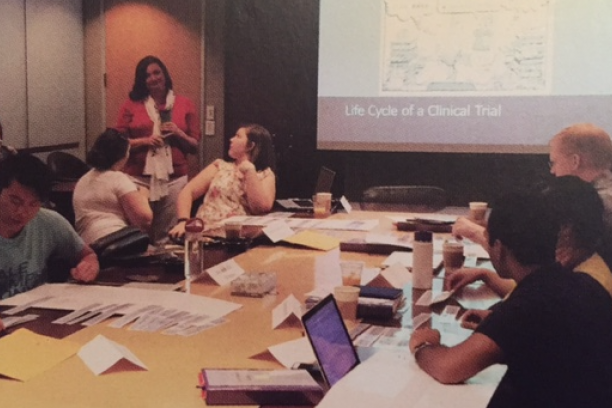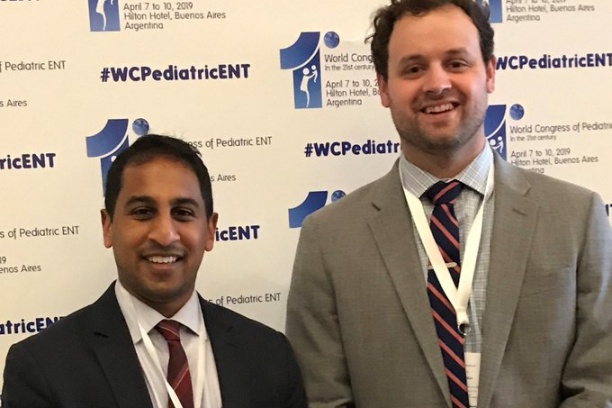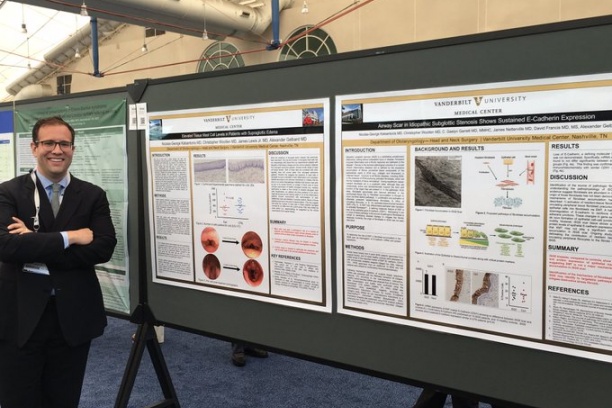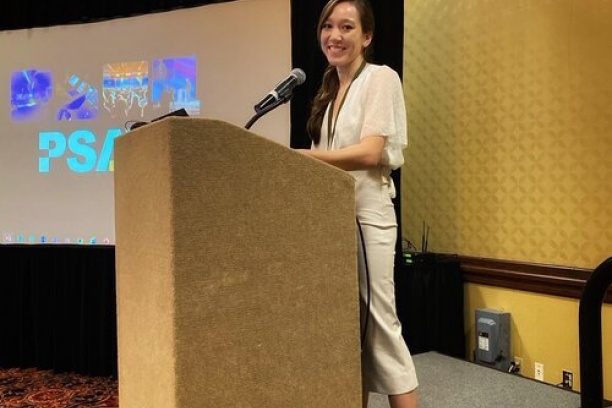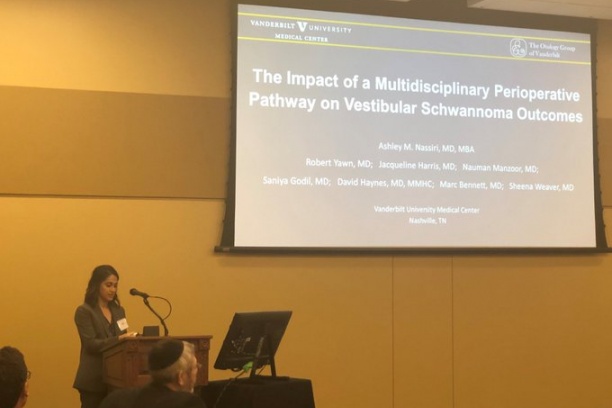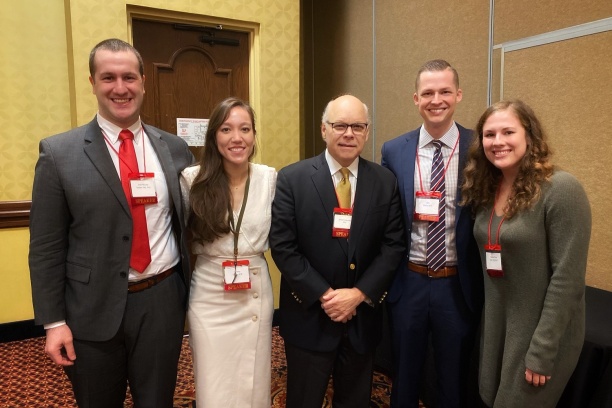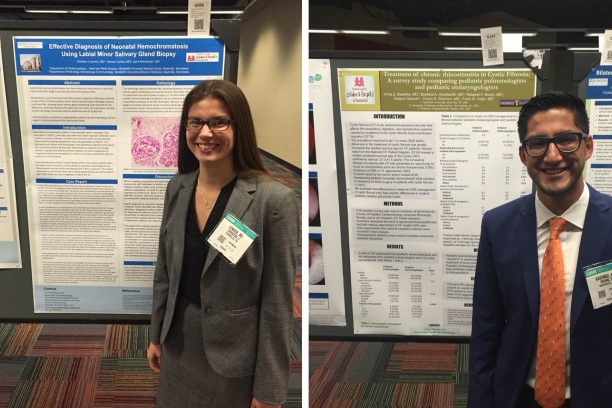Research Experience and Innovation
Vanderbilt consistently ranks in the top 1-3 for NIH funding received by Otolaryngology-Head and Neck Surgery (OHNS) departments, highlighting the immense value that we place on research. Our residents are strongly encouraged to participate in research and supported to do so during the five years of their residency program. We are proud to support our residents during their PGY-3 year by protecting two of their five rotations (at least 5 months) for research. Residents can carry out clinical, translational, or basic science research in an area of their choice. Research can be done within OHNS, through any other Vanderbilt University department, or at another academic institution, including those in different countries. Recently, OHNS residents have worked with the World Health Organization and carried out research in Africa and Central America.
A 7-year physician-scientist training program (VTOPS) is offered separately from the clinical track.
Research Bootcamp
We developed a unique preparatory course (also known as research bootcamp) consisting of a 2-week curriculum presented at the beginning of PGY-3 before the research block. Coordinated by the Director of Research, Alexander Gelbard, MD, this time gives residents an overview of important research concepts including (1) topics useful to all regardless of research thrust (e.g., statistical methods) and/or necessary from a regulatory standpoint (e.g., Institutional Review Board (IRB) training), (2) topics not formally covered during residency training (e.g., professional development), and (3) time for class team-building. The Department has supported residents’ teambuilding at everything from a ropes course to white water rafting on the Ocoee.
Research Presentations
Residents are encouraged and provided significant support to present their research externally at inter/national meetings. There is no maximum to the number of meetings a resident can attend (if the resident has an accepted presentation) as long as all clinical services have adequate coverage. Residents routinely attend the Combined Otolaryngology Spring Meetings (COSM) and the AAO-HNSF Annual Meeting (Academy). Residents have also been supported to attend international conferences (e.g recently in Scotland, South Africa, and Switzerland)
Internally, residents present research throughout the year during Grand Rounds. Additionally, there is an annual Resident Research Day during which PGY3-5 residents present and compete for prizes. The day typically concludes with an invited speaker (frequently a clinician-scientist) who discusses scientific endeavors and experiences in academic medicine.
Journal Clubs
Weekly review of research articles relevant to otolaryngology practice is part of the Friday resident teaching conferences. Additionally, many clinical rotations/subspecialties include monthly journal clubs to discuss the most recent research and clinical advancements in the field. Trainees will attend program-specific journal clubs during their research block and are encouraged to continue doing so during clinical rotations if feasible.
